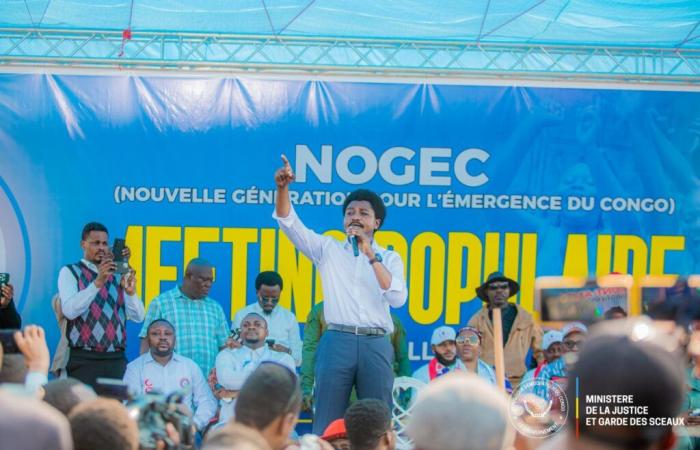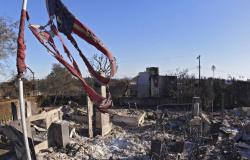
Delinquents, opponents, journalists, priests all threatened by the Minister of Justice.
Recent weeks have been marked by the death sentence of 123 kulunas in Kinshasa. These idle young delinquents spread fear after dark in most neighborhoods of the Congolese capital, a megacity of more than 15 million inhabitants.
Thefts, rapes, murders, most often with knives, the picture of horrors of these criminals who act in gangs is particularly sordid. Three hundred young people were apprehended in Kinshasa during a vast dragnet called “Ndobo” (fish hook in Lingala). The trials were conducted smoothly and of the 300 young people arrested, 127 were sentenced to death before being sent by plane to Angenga prison, very far from Kinshasa, in the northwest of the country.
Detained far from Kinshasa
Amnesty International, the human rights NGO, quickly protested, via Sarah Jackson, its deputy regional director for East and Southern Africa, against the transfer of detainees to a prison. where dozens of detainees have died of hunger and disease in the past”, before adding: “the announcement of these transfers is absolutely appalling. We fear imminent executions, in a context of lack of reliable information on the status of the condemned.”
Constant Mutamba, the Congolese Minister of Justice, justified these transfers as a step in the execution of the death penalty, authorized by Congolese laws before widely relaying the images of these young people leaving for Angenga, hammering : “the police arrest, justice judges and sentences”, after announcing that other raids would still take place in Kinshasa and other major cities in the Democratic Republic of Congo. He also welcomed, without supporting figures, “a reduction in banditry in Kinshasa thanks to these measures”.
This Thursday, January 9, the same minister brandished the threat of the death penalty in one of his messages on civil society, journalists, clerics, who will relay the activities of the Rwandan army and its M23 auxiliaries” which were in its sights.
Sow fear
An outing which seems to confirm that the threat of the death penalty is not only intended for kulunas or other military deserters in the east of the country, but has become an argument to frighten and try to silence those who will not share the narrative of the power in place.
The day after the lifting of the moratorium on the execution of the death penalty, the Congolese citizen movement Lucha (Fight for Change) warned against future abuses, believing that this decision “opens a corridor to summary executions in this country where the defective functioning of justice is recognized by everyone, including the supreme magistrate himself.” La Lucha here referred to President Félix Tshisekedi’s criticism of the Congolese judicial system.
A president who had himself raised many concerns by declaring, on May 25, 2023 at the Kashala Bonzola stadium in Mbuji Mayi (Kasaï-Oriental): “I will attack without hesitation, without remorse, any Congolese who endangers the security and stability of our country,” before continuing: “No matter what anyone says about it: violation of human rights, deprivation of freedoms… I will not budge because I am a democrat, and I will remain a democrat. I have no lessons to learn from anyone in these areas.”
Declarations and decisions which must be reread in the perspective of the desire of the ruling clan to modify the Congolese constitution whatever the population, the opposition and the text of the constitution say.
The President of the Republic’s party, the UDPS, knows the weight that mobilized youth can represent in a political fight. He is aware of the capacity of the media and especially of the Churches, even weakened, to convey unifying messages. The latest initiatives and outputs of the Minister of Justice must be read in the light of the objectives of this power. But the threat alone only lasts if actions do not follow.
Will the authorities go so far as to execute one of these condemned to death? Some representatives of local NGOs, who prefer to remain anonymous, are convinced of this while pointing out that, in the case of kulunas, the legal procedure has not been exhausted. They were convicted at first instance and still have several avenues of appeal. The Congolese repressive machine is in motion. The regime has not forgotten that in 2015, in a fairly similar scenario, the standoff between power and the street turned to the advantage of the latter despite the violence of the repression. Could the threat of the death penalty be applied to break the dynamics of the opposition? This is the bet that the Tshisekedi regime seems to have taken.





